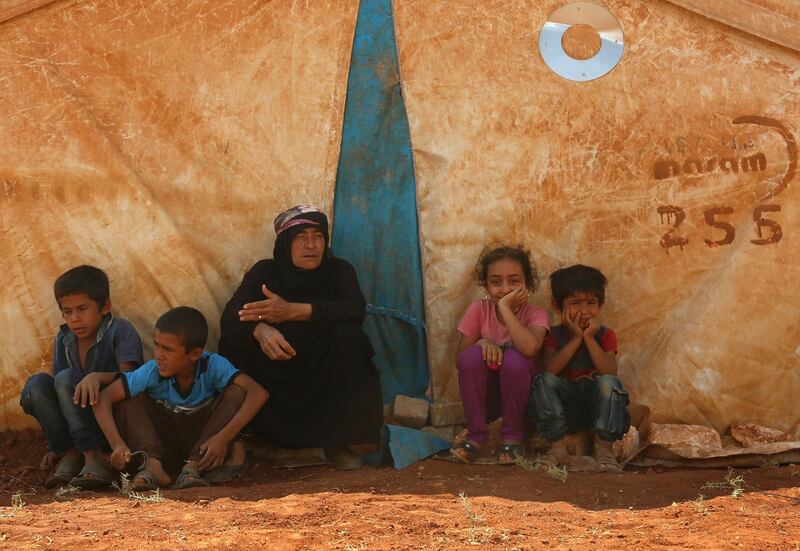Idlib is a "ticking timebomb". So said French envoy Francois Delattre, who urged for restraint at the United Nations, even as Russian and Syrian jets pounded the northwest province with barrel bombs today, adding: "Few disasters have been so clearly anticipated and subject to so many convergent warnings by the international community."
He was not alone in doing so. US ambassador Nikki Haley called the pending assault on the last rebel stronghold “a playbook of death”. Britain’s representative to the UN Karen Pierce pleaded: “There are more babies in Idlib than there are terrorists.”
But this is the impasse that we have come to, where words mean nothing. The most powerful rhetoric in the world is followed by inaction, apathy and indifference, as we have seen before, over and over again: in Aleppo, in Homs, in Eastern Ghouta, and now in Idlib, where even Syrians have given up waiting for the international community to take note of their suffering and act on the basis of humanity.
Red lines have been crossed repeatedly; in 2013, when then US president Barack Obama failed to act on his promise to the Syrian people after chemical weapons were used in an onslaught; and again in Khan Sheikhoun in 2017 and Douma in 2018, where ineffectual US airstrikes barely dented Bashar Al Assad's enthusiasm for attacking his own people.
He is ploughing relentlessly on towards crushing the last rebel stronghold, backed by his Russian and Iranian supporters, and the words uttered in a hollow chamber in New York 9,000 miles away have, so far, done little to dint the killing spree.
When Syrian government forces rounded up thousands upon thousands of besieged, long-suffering citizens from Eastern Ghouta and Aleppo and offered to evacuate them to Idlib, this was no humanitarian corridor; they were effectively being bussed to their deaths. Rounded up and herded onto buses, they are entirely dispensable to Mr Al Assad as he envisages rebuilding Syria in his own image, populated by loyalists.
The UN estimates there are 15,000 rebel fighters left, amounting to 0.5 per cent of the total population.
Meanwhile, in Idlib, the three million citizens under bombardment include more than one million terrified children, many of whom will know nothing other than a relentless war, which has robbed them of their birthright to have the full protection of the state.
As the international community becomes inured to the now familiar news of barrel bombs and chemical weapons attacks, their stolen innocence is a stain on the world’s conscience. No words will ever be enough to remove it.





